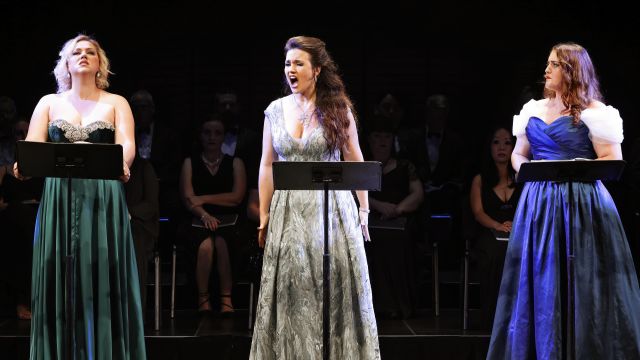Maria Stuarda
The reign of Lyndon Terracini as artistic director of Opera Australia, from which he retires next year, has been notable for his use of so many celebrated international singers.
It’s sometimes spectacular for audiences; but not too favoured by Australian singers.
Three visitors are, literally, in the line-up of six singers in this concert version of Donizetti’s opera, all directly facing the audience, presented without the bother – and further expense – of stagecraft, costumes and setting. A brilliant chorus sit behind, with only the lighting expressively suggesting scene shifts. The women dress in a number of sumptuous ball gowns; the men stay in formal blacks.
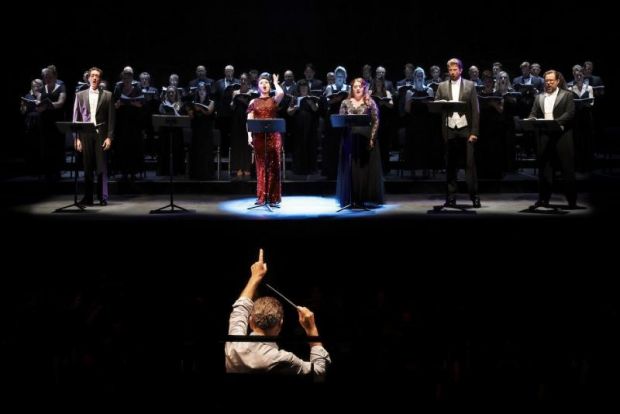
We are witness to the last years of the imprisoned Mary Queen of Scots before her rival, the virgin Queen Elizabeth I, succumbs to her jealousy and orders Mary’s execution.
Russia’s soprano Olga Peretyatko is sublimely fluid in the bel canto role of Mary, soaring effortlessly through dark drama and glorious coloratura, and with a moving physicality. Carmen Topciu sings precisely the far less sympathetic role of Elisabeth, tripping easily through Donizetti’s speedy melodies, notably in her pacey duets of disagreement with her favourite, Leicester.
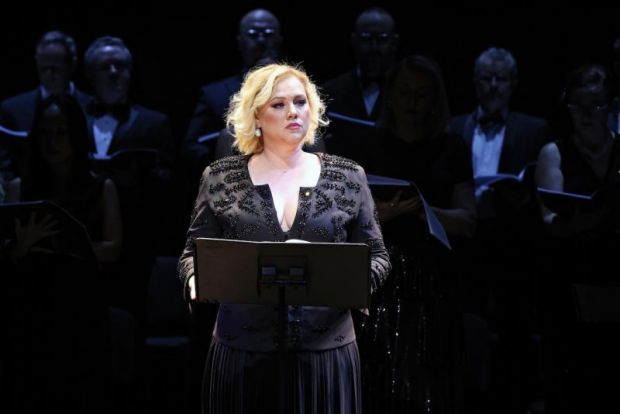
Italian tenor Valerio Borgioni, aged just 25, sings a heartfelt Leicester, who (in an historical absurdity) is here also the lover of Mary. Presumably that’s why Elizabeth wears jealous green and talks of nothing else.
It’s expected of an Italian opera of 1835, given how long Catholic Europe has immortalised the martyred Mary, and damned the bastard fouling the throne of England. Mary tells her as much when the catty queens meet, which historically never happened.
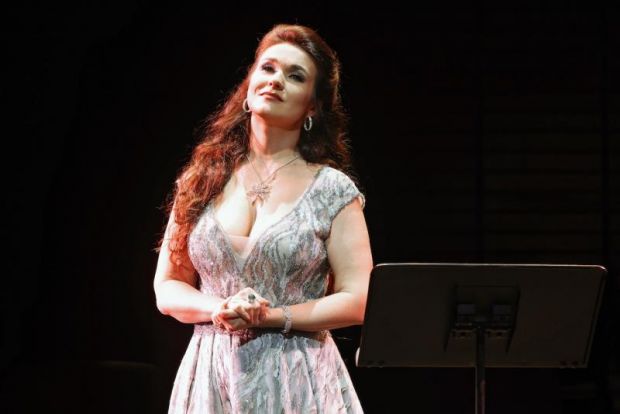
And since the queens are women, they sing only of love and vengeance – nothing of what were surely their real geopolitical concerns of state. Kate Mulvaney’s luminous feminist version for the Sydney Theatre Company took a very different tack, but like Donizetti’s opera she drew on the same influential source, Freidrich Schiller’s 1800 play Maria Stuart.
As for the locals, Richard Anderson had lovely gravitas as Mary’s prison confidante; Shane Lowrencev was decisive as Cecil; and understudy Bronwyn Douglass appealed as Mary’s companion.
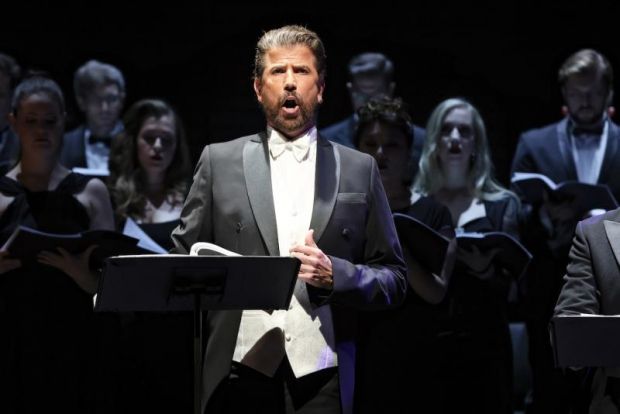
The thrilling resonant end was the final affirmation that concert versions are a welcome chance to listen intensely and without distraction to great singers and scores.
Martin Portus
Photographer: Prudence Upton.
Subscribe to our E-Newsletter, buy our latest print edition or find a Performing Arts book at Book Nook.

